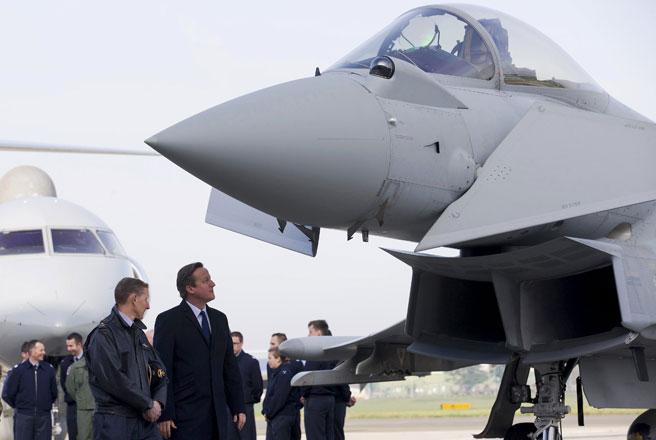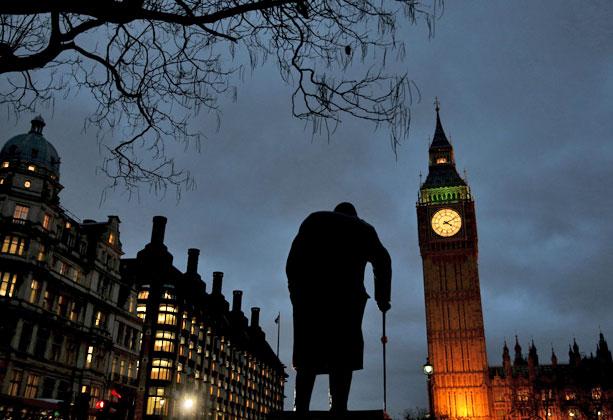You are here
UK government denies dropping plans for vote on Syria air strikes
By Reuters - Nov 03,2015 - Last updated at Nov 03,2015
LONDON — Prime Minister David Cameron believes Britain should do more to tackle Islamist militants in Syria and has not dropped plans to seek parliamentary approval for air strikes there, his spokeswoman said on Tuesday.
She spoke after several newspapers said he had dropped the plans after failing to get enough backing. They also cited Russia's move to support President Bashar Assad by bombing Daesh militants in Syria as a complicating factor.
Keen to avoid a repeat of his 2013 defeat over air strikes against Assad, Cameron has been trying to build cross-party support for extending British strikes to Syria from Iraq.
He has a slim majority in parliament and, with some of his own Conservatives opposed to strikes, he needs to win support from the opposition Labour Party now led by anti-war campaigner Jeremy Corbyn.
Cameron's spokeswoman Helen Bower denied the vote had been shelved.
"He has always been clear that he thinks there is a case for doing more to tackle the threat from ISIL [Daesh], and that we would only go back to the House [of Commons] on this issue if there was clear consensus and that remains the case," she said.
"You can't put a time scale on the vote."
She said the government believed the situation in Syria would ultimately be resolved by political means and, along with allies, it was trying to "inject a bit more momentum into that".
In France, President Francois Hollande said Paris would continue its air strikes in Syria and would hold a defence council meeting to discuss the matter on Thursday.
"Every time we have information on training camps where there are jihadists, terrorists, who could at some point threaten our country, we strike," he told Europe 1 radio.
Coherent strategy
The reports about Cameron's plans came as an influential committee of lawmakers warned Britain should not extend its air strikes into Syria until there is a coherent international strategy with a "realistic" chance of defeating the militants.
"In the absence of such a strategy, taking action to meet the desire to do something is still incoherent," parliament's Foreign Affairs Committee said in a report published on Tuesday.
The committee, chaired by Conservative parliamentarian Crispin Blunt, said the government should not seek approval until it gives details of its plans.
It called on the government to explain how British involvement would improve the chances of the international coalition's success, warned about the legal ambiguity of taking action without a UN Security Council Resolution and asked which ground forces would support Britain's air effort.
Blunt said there was now an "alarming range" of international actors involved in Iraq and Syria and there was no expectation British intervention would be militarily decisive.
"These forces desperately need coordinating into a coherent strategy and that is where our efforts should be focused," he said.
On Friday 17 countries, the European Union and the United Nations called for a nationwide truce in Syria's civil war at peace talks in Vienna, attended for the first time since the conflict began in 2011 by Assad's ally Iran.
Labour's Corbyn welcomed the British committee's report, saying it underlined the need for a political settlement.
"There seems to be some signs that that's improving with the Vienna talks now including Iran ... maybe that's the way forward," he told Sky television. "There has to be a political solution and I don't believe that more bombing is actually going to help."
Related Articles
LONDON — Prime Minister David Cameron said on Thursday it was time to join air strikes against the Daesh terror group in Syria because Brita
KRUEN, Germany — Britain is to expand its military training mission in Iraq in the coming weeks, Prime Minister David Cameron announced on S
LONDON — Britain's opposition Labour Party said on Monday its lawmakers could vote according to their consciences on air strikes against mil


















